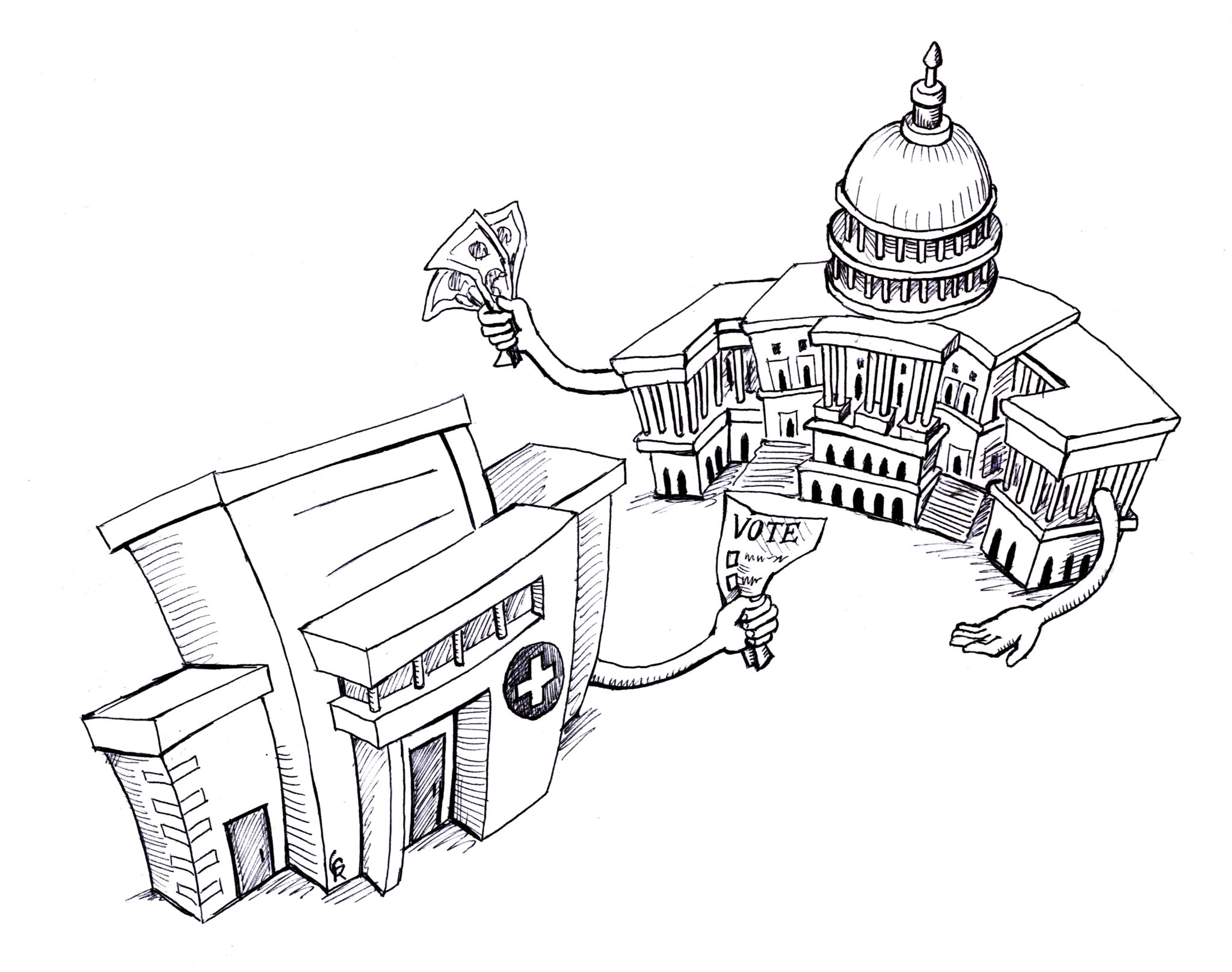
New research provides the first empirical measure on how political maneuvering affects hospitals and health care providers.
Three Yale affiliates — economics professor Zack Cooper, graduate student Jennifer Wu GRD ’22 and economics professor Amanda Kowalski — and a professor at the University of Wisconsin at Madison released a working paper in August that explores the link between politics, hospital behavior and health care spending. The paper concludes that the link between politics and Medicare policy “can dramatically affect U.S. health spending.” Since its publication, the paper has received national attention from major news outlets.
“Health care is constantly being discussed, and obviously so is politics and legislative behavior,” Wu said. “So to get people thinking critically about the politics of health care and what it means for there to be government involvement in the regulation of health care would, at least for me, be a positive outcome.”
The paper investigated the impact of the Modernization of Medicare Act, or MMA, which Congress passed in 2003. In order to persuade fiscally conservative Republicans to vote for the dramatic expansion of Medicare, legislators added a provision to the bill called Section 508, which, according to the paper, “created a pathway for hospitals to apply to get their Medicare payment rates increased.” Broad wording in the provision allowed the House of Representatives to reward districts for their legislators’ support of the bill, the paper added. Notably, the proportion of hospitals receiving a Section 508 waiver in districts represented by legislators who voted for the bill is far higher than the proportion of hospitals located in districts whose representatives voted against the bill.
As a result of the Section 508 waivers, hospitals in supported districts have profited in multiple ways, increasing benefits for patients and employees alike. According to the paper, hospitals with the Medicare benefits increase “treated more patients, increased payroll, hired nurses, added new technology, raised CEO pay and ultimately increased their spending by over $100 million annually.”
Congressmen who supported the provision were rewarded by their constituents as well. In districts with Section 508 recipient hospitals, representatives received a 22 percent increase in campaign donations, including a 65 percent increase among individuals working in the health care industry, according to the paper.
According to Cooper, the working paper is undergoing peer review but is not set for publication in any journal, as is typical of economics papers. But although the paper has not been published, the study has already garnered media interest. Since its release, it has been cited by news outlets such as The New York Times, The Economist and Politico.
“The best expectation for any academic paper is that it gets nonacademics to think critically about things that academics think are important,” Wu said.
Media coverage of the paper has condemned the injustice of pork-barrel legislation like Section 508, which garners votes by promising services to specific legislative districts. Such legislative measures are often criticized for inviting corruption and encouraging legislators to vote for measures that will prompt their constituents to reelect them instead of voting based on what they believe will most benefit the nation, according to research by Yale political science professor David Mayhew. From 1996 to 2006, the number of pork projects in appropriations rose from 958 to 13,999, costing billions of dollars in federal spending, according to CBS.
Such legislation also makes Congress more susceptible to lobbying efforts, Cooper said. In the wake of the passage of MMA, hospitals receiving Section 508 vouchers formed the Section 508 Hospital Coalition to lobby Congress to expand the program. And in 2015, “hospitals, health service providers and health professionals spent $257.9 million on lobbying activities,” compared to $74.6 million spent by defense lobbyists, according to the paper.
Cooper said the paper demonstrates a need to insulate health care policy from politics.
“This can either be through having a larger role for markets or by creating arms-lengths bodies like a Federal Reserve for health care,” he said.
About one fifth of national health spending and 15 percent of the federal budget fund Medicare, according to the working paper.
Nathalie Bussemaker | nathalie.bussemaker@yale.edu







